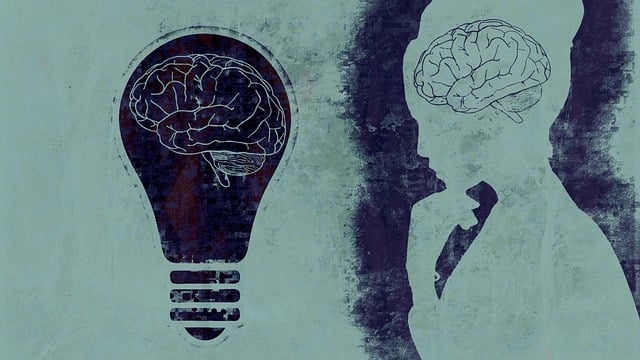Littleton Psychological Testing Therapy offers comprehensive crisis intervention services, combining immediate support with long-term resilience building. They specialize in culturally sensitive approaches, tailoring interventions to individual needs and backgrounds. Through psychological testing, stress reduction methods, workshops, and community outreach, they empower individuals and communities to manage crises effectively. Post-crisis care focuses on personalized assessment, skills training, and social support to promote recovery and prevent recurring mental health issues.
In moments of crisis, effective intervention can make all the difference. This comprehensive guide delves into essential strategies for supporting individuals facing acute distress. From understanding the foundational principles of crisis intervention to exploring the role of psychological testing and tailored therapy techniques, we provide insights for professionals. Additionally, discover post-crisis care and prevention methods that foster resilience. Empowered with this knowledge, practitioners like Littleton Psychological Testing Therapy can offer robust support networks during challenging times.
- Understanding Crisis Intervention: A Foundation for Effective Support
- The Role of Psychological Testing in Crisis Intervention
- Therapy Techniques for Short-Term Crisis Management
- Post-Crisis Care and Prevention Strategies: Building Resilience
Understanding Crisis Intervention: A Foundation for Effective Support

Understanding Crisis intervention involves recognizing the immediate and intense support needed during periods of extreme distress or threatening situations. It’s a crucial foundation for mental healthcare professionals, like those at Littleton Psychological Testing & Therapy, who specialize in providing effective guidance. A well-trained crisis intervener is attuned to the individual’s unique needs, cultural background, and context, ensuring that support is tailored and respectful.
Incorporating Cultural Sensitivity in Mental Healthcare Practice is integral to this process. It means understanding and appreciating the diverse beliefs, values, and communication styles of those seeking help. By integrating Stress Reduction Methods and even organizing Stress Management Workshops within organizations, crisis interveners can empower individuals with tools to manage future crises proactively. This holistic approach fosters resilience and ensures that support extends beyond immediate intervention, contributing to long-term well-being.
The Role of Psychological Testing in Crisis Intervention

Psychological testing plays a pivotal role in crisis intervention strategies, offering valuable insights that guide therapists and counselors. These assessments provide a comprehensive understanding of an individual’s mental state, helping professionals tailor interventions to address specific needs. By utilizing various tools, such as psychological evaluations and diagnostic questionnaires, practitioners can identify underlying issues contributing to the crisis. For instance, in cases involving trauma or severe emotional distress, Littleton Psychological Testing Therapy offers specialized assessments to uncover hidden challenges.
Incorporating cultural sensitivity in mental healthcare practice is essential during this process. Recognizing diverse cultural backgrounds ensures that testing methods are adaptable and relevant to the individual’s experience. This consideration is vital for accurate interpretations and effective crisis management. Additionally, mental illness stigma reduction efforts can be supported by these assessments, as they promote a nuanced understanding of complex psychological situations. Social skills training, another beneficial aspect, can be integrated into the intervention plan based on testing outcomes, enhancing overall recovery and resilience.
Therapy Techniques for Short-Term Crisis Management

In the heat of a crisis, effective short-term management is key to mitigating harm and promoting swift recovery. Littleton Psychological Testing Therapy offers valuable tools for this purpose, focusing on therapy techniques that can be implemented immediately. One such technique is cognitive reframing, which encourages clients to challenge negative thoughts and adopt positive thinking patterns. This approach helps individuals navigate distressing situations with a more balanced perspective, fostering resilience against future crises.
Additionally, healthcare providers can benefit from burnout prevention strategies tailored to their profession. By integrating practices like mindfulness and stress management into their routines, professionals can enhance coping mechanisms and maintain emotional well-being. Community outreach programs play a vital role here, as they promote positive thinking on a larger scale by fostering connections and providing support networks. These initiatives, combined with effective therapy techniques, contribute to building a robust defense against crises within communities.
Post-Crisis Care and Prevention Strategies: Building Resilience

Post-crisis care is a vital component of any effective crisis intervention strategy. Following a traumatic event, individuals often require ongoing support to rebuild their lives and regain a sense of normalcy. This phase focuses on providing necessary resources and services to help people cope with the aftermath and prevent further escalation of mental health issues. One key aspect is offering Littleton Psychological Testing Therapy to assess and address individual needs, especially for those at risk of long-term anxiety or depression.
Building resilience is a central goal in post-crisis care. This involves empowering individuals and communities to better navigate future challenges. Strategies can include confidence-boosting initiatives, such as skills training and support groups, which foster a sense of empowerment and self-efficacy. Additionally, implementing community outreach program implementation can enhance social connections and provide early intervention services, thereby reducing the likelihood of future crises. Such programs can offer much-needed relief from anxiety and promote overall well-being in affected communities.
Crisis intervention is a multifaceted field that combines understanding, assessment, and therapeutic techniques to support individuals during challenging times. By integrating knowledge from psychological testing and diverse therapy approaches, as exemplified by Littleton Psychological Testing & Therapy, professionals can effectively navigate crises and foster resilience. This comprehensive guide highlights the importance of each step in crisis management, from initial assessment to post-crisis care, ensuring that those facing emergencies receive the best possible support.














